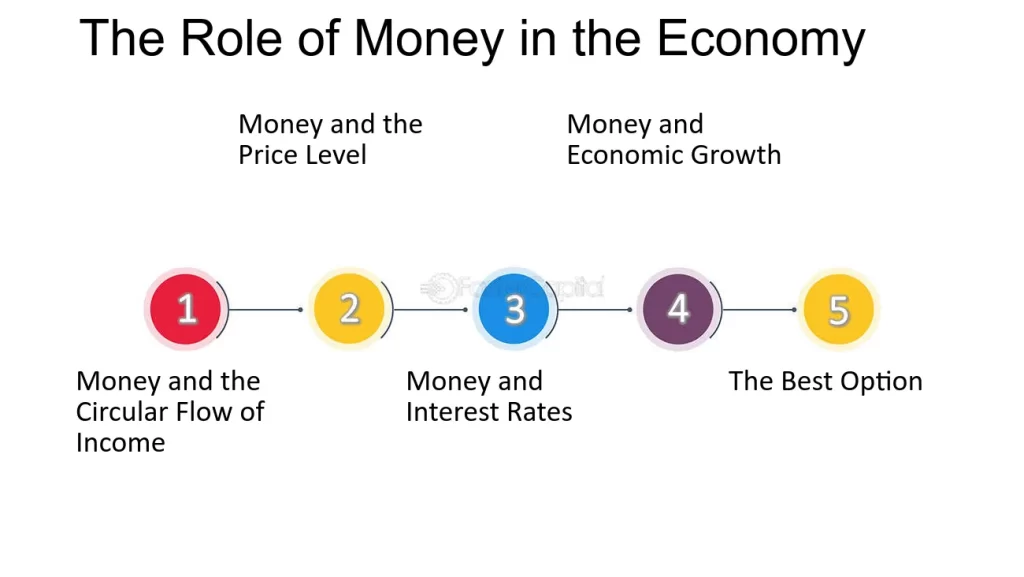Currency plays a fundamental role in the economy, serving as the lifeblood of trade, commerce, and financial systems. Whether it’s paper money, coins, or digital forms, currency is essential for facilitating transactions and ensuring economic stability. Let’s explore the various roles that currency plays in shaping an economy, from being a medium of exchange to influencing global trade and financial stability.
1. Medium of Exchange
One of the most basic and crucial functions of currency is its role as a medium of exchange. By acting as an accepted form of payment for goods and services, currency simplifies trade and eliminates the inefficiencies of bartering. Without a standardized medium of exchange, transactions would be cumbersome, requiring a double coincidence of wants, where both parties need exactly what the other offers. Currency makes this process smoother, more convenient, and scalable, supporting the growth of markets and trade.
2. Store of Value
Currency serves as a store of value, allowing individuals and businesses to save and accumulate wealth over time. Unlike goods that may depreciate, spoil, or lose their value, currency can retain its worth if properly managed. This function of currency is crucial for savings, investments, and long-term financial planning. It provides a means for people to set aside resources today for future use, contributing to economic stability and individual financial security.
3. Unit of Account
Currency provides a standard measure for pricing goods and services, making it easier for individuals and businesses to compare the value of different products across the economy. This “unit of account” function allows for consistent pricing, which is critical for transparent trade and efficient economic activity. It helps consumers make informed decisions, and businesses can plan investments and production based on predictable costs and revenues.
4. Facilitates Economic Growth
The availability of currency is vital for stimulating economic growth. Currency supports investments, trade, and entrepreneurship by enabling smooth transactions and reducing transaction costs. It facilitates the flow of money from savers to investors, fueling innovation, infrastructure development, and job creation. Without currency, the economy would stagnate, as businesses and individuals would face difficulties in carrying out day-to-day transactions or long-term investments.
5. Influences Monetary Policy
One of the most significant roles of currency is its impact on monetary policy. Central banks, such as the Federal Reserve or the State Bank of Pakistan, control the supply of currency in the economy to manage inflation, interest rates, and overall economic stability. By increasing or decreasing the money supply, central banks can stimulate growth, curb inflation, or address economic recessions. This control over currency helps maintain price stability and ensures a stable economic environment.
6. Impact on Global Trade
Currency also plays a pivotal role in international trade. Exchange rates between different national currencies affect how competitive countries are in global markets. For instance, a weaker currency can make a country’s exports cheaper and more attractive to foreign buyers, while a stronger currency can increase the cost of imports. These currency fluctuations impact trade balances, global competitiveness, and international economic relationships.
7. Encourages Consumer Spending
Easy access to currency increases purchasing power, driving consumer demand for goods and services. When people have money to spend, businesses thrive, and the economy grows. Conversely, limited access to currency or high inflation, which erodes the value of money, can reduce consumer spending and slow down economic activity. Therefore, currency plays a direct role in shaping consumer behavior and the overall economic cycle.

8. Helps with Taxation and Government Spending
Currency is essential for the functioning of governments, particularly in the collection of taxes and spending on public services. Governments rely on currency to fund infrastructure, education, healthcare, and other essential services. Taxation also helps regulate the economy by redistributing resources and funding long-term projects that support economic development. Without currency, governments would struggle to maintain their essential functions and meet the needs of their citizens.
9. Promotes Financial Stability
A stable currency is vital for maintaining economic confidence and preventing inflationary or deflationary pressures. When a currency is stable, individuals and businesses feel secure in their financial transactions, knowing that the value of their money will not fluctuate wildly. This stability helps attract investments, as both domestic and foreign investors are more likely to invest in a country with a strong and stable currency.
Currency is far more than just a tool for buying goods and services; it is a cornerstone of economic activity. From facilitating trade to influencing global markets and supporting governmental functions, currency plays multiple roles that are crucial for the health and stability of an economy. As the global financial landscape evolves with the rise of digital currencies, the fundamental importance of currency in the economy remains unchanged. The ability to manage, use, and understand the role of currency is essential for businesses, individuals, and governments alike.